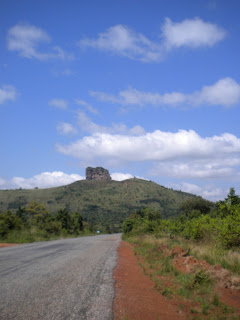
IT is not that meetings, meals or buses start late here. Events begin when they are ready. Buses (or at least the tro-tro minibuses used across the country for long and short journeys) do not leave early or late – they depart when they are full. Meetings start when the majority of the participants have arrived. The day starts not at a particular time, but when the sun comes creeping up over the horizon. It is as if there were a unanimous, unspoken decision taken in a time before clocks and watches not to challenge the order of things. And that decision has remained intact – despite the advent of new technology. Each day, each week is so loosely partitioned, the dividing lines are almost imperceptible. Each night there is a fleeting sensation, as day becomes the briefest palimpsest of thinly veiled layers - as the degrees fall as softly as eiderdown and light is edged offstage to be replaced by darkness. Each week is punctuated – for so many of those people we have met – only by church on Sunday. The year is not drawn up in four quarters. The vigorous changes of Spring, Summer, Autumn and Winter are altogether missing. In their place is rainy, dry and then dusty. Right now we are in the dusty Harmattan. It is something that colleagues have spoken about with dread since we arrived. The days have turned milky white, the sun shrouded in white muslin, the air drier, heavy with dust that has been carried – somehow – from the Sahara. It begins when the air changes and the dust comes. If you ask when it will finish, people will tell you, it will end when it ends. Some will say January, others March or February or April. Equally if you ask when the bus will depart the answers will be varied and confusing. Ask how far it is to your destination responses will include: very far, not far, too far, close and very close. The assurance is always you will get there when you arrive. The specifics are something that will just happen and can not be controlled.